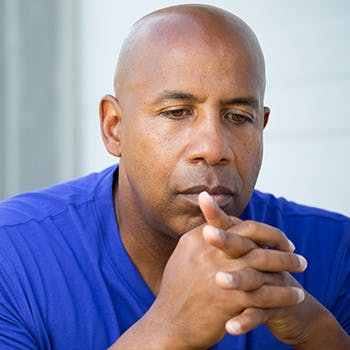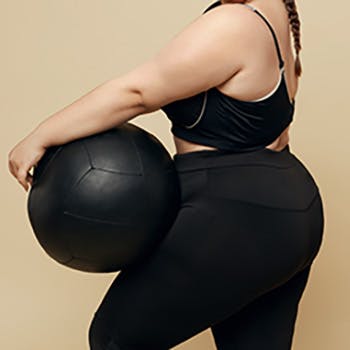What are Hemorrhoids?

Hemorrhoids refer to a condition where the veins in the lower rectum and around the anus are swollen, dilated and inflamed (similar to varicose veins in legs). This can result in pain, itching, irritation, burning and sometimes bleeding – these symptoms indicate a flare-up. About 75% of all Americans will have hemorrhoids at some point in their lives.
There are two types of hemorrhoids: internal and external. Internal hemorrhoids occur in the lower rectum and external hemorrhoids develop under the skin around the anus.
Internal hemorrhoids are typically painless, even when they produce bleeding. Internal hemorrhoids can become painful when straining pushes them out through the anus (also called a prolapsed hemorrhoid). When this happens, it may cause irritation and itching.
External hemorrhoids can lead to discomfort and itching because they make cleaning this area difficult. If a blood clot forms inside an external hemorrhoid, the pain can be sudden and severe.1
Preparation H Answers: What are Hemorrhoids?
In this video, learn about the different the symptoms of hemorrhoids and what can trigger a flare-up. In addition, find hemorrhoid relief with Preparation H® and simple lifestyle changes.
How Long Do Hemorrhoids Last?
Hemorrhoids are a chronic condition, meaning once they form they do not go away. Flare-ups, on the other hand, come and go. The smaller the hemorrhoid, the faster it will clear up: most of the time, symptoms go away after a few days, even without treatment.2 However, if symptoms do not improve after a week of home care, you should speak with your doctor.3
How Do You Know That You Have Hemorrhoids?
Signs can include itching, bleeding, and general discomfort. You may also feel or see a lump protruding from your anus. Consult your doctor if there’s bleeding or you’re not sure, to rule out other problems.
Do Hemorrhoids Hurt?
They’re typically more irritating than they are painful, but external hemorrhoids can cause immense suffering if they are thrombosed, meaning a blood clot has formed in the vessel. (A doctor can make a small incision to remove the clot.)
Relief for Hemorrhoids
Most hemorrhoids will eventually go away without medical intervention, but there are some ways to feel better:
- Incorporate fiber-rich foods or a fiber supplement (not a laxative) in your diet to soften your stool. Fiber pulls water into the stool, making it easier to have a smooth and complete bowel movement. High-fiber foods include fruits like raspberries and bananas, veggies like broccoli and peas, grains like oatmeal and quinoa, and legumes like black beans and lentils
- Keep your anus clean and dry. Doing so will stave off itchiness and therefore scratching, which will only serve to aggravate hemorrhoids.
- Limit the amount of time you spend on the toilet, as the act of sitting itself puts pressure on hemorrhoids.
Take a warm bath (specifically called a sitz bath) for 10-15 minutes. Add scented candles and a good book to enjoy the experience.
You can get relief from flare-up symptoms with PREPARATION H products. To reduce the risk of flare-ups and prevent new hemorrhoids, you can make lifestyle changes like exercising and reducing constipation with a balanced, high-fiber diet. These treatments can help manage your symptoms and improve your quality of life.
Source Citations:
1. Hemorrhoids and what to do about them. Harvard Health Publishing. https://www.health.harvard.edu/diseases-and-conditions/hemorrhoids_and_what_to_do_about_them/. Accessed 8/30/2023.
2. How long do hemorrhoids last? Medical News Today. https://www.medicalnewstoday.com/articles/322976/. Accessed 8/30/2023.
3. Hemorrhoids. Mayo Clinic. https://www.mayoclinic.org/diseases-conditions/hemorrhoids/symptoms-causes/syc-20360268/. Accessed on 8/30/2023.


